The Passivhaus Trust has outlined its key recommendations for how the Scottish equivalent to the Passivhaus standard could be delivered.
The recommendations come ahead of a summer consultation on the Scottish Government's proposal to introduce design standards for all newbuild housing to meet a Scottish equivalent to the Passivhaus standard. New legislation is expected to be adopted in December.
The Passivhaus Trust recommends that the Scottish Equivalent to Passivhaus should be:
• Introduced into Scotland with a transition period to allow for training and industry preparations.
• Based on the full Passivhaus standard, adapted into a Scottish-owned version that will include localised weather data.
• Designed and built by the existing, local supply chain, with training and support for key sectors (such as ventilation systems) where needed.
• Verified/certified through Local Authority Verifiers and Section 6 Assessors, who will receive appropriate training to add this to their skills.
• Supported with funding for social housing providers, through a modification of additional supported measures within affordable housing investment benchmarks.
Certified Passivhaus buildings should be accepted as 'Deemed to Satisfy' the new regulations from January 2025, to create a positive incentive for the industry to start the transition immediately.
Central to its recommendations is the need for a transition period for the construction industry to prepare for the policy. This is to allow for upskilling and training during a realistic timeframe once the industry has clarity on the exact policy requirements. The Passivhaus Trust is clear that the Scottish Passivhaus equivalent policy should be based on the full Passivhaus standard and its metrics, so that Scotland can benefit from the tried and tested international methodology. As a positive incentive to encourage speedy adoption, the Trust is also suggesting that buildings built to the Passivhaus standard are considered 'deemed to satisfy' Scottish building regulations from January 2025.
Training in Passivhaus design and construction is readily available in Scotland, but the Trust has also identified a specific additional training need for ventilation system engineers, and training for those involved in certification. To maintain the rigorous quality assurance standards of Passivhaus and embed them into a Scottish context, the Passivhaus Trust is proposing that Local Authority Verifiers and Section 6 Assessors are trained to undertake the quality assurance for the Passivhaus equivalent standard.
To support the transition, the Passivhaus Trust proposes that social housing providers receive additional funding, through a modification of additional supported measures within affordable housing investment benchmarks. In addition, the Trust will encourage and support knowledge-sharing of cost-effective approaches, to help speed up the learning curve process.
Sarah Lewis Research & Policy Director at the Passivhaus Trust commented: "Scotland is leading the way in developing building standards that will radically cut heating bills, improve indoor air quality and comfort, and deliver quality homes that perform as designed. The Passivhaus Trust is here to support the Scottish Government and construction industry's move towards a Scottish Passivhaus equivalent standard. We have identified numerous ways that we can help the Scottish construction industry through that transition.
"We have been impressed with the can-do attitude of the construction industry involved in delivering Passivhaus schools in Scotland. However, we need time to ensure that the Scottish construction industry is fully prepared and ready to deliver Passivhaus equivalent homes at scale, so have identified that a transition period is essential."
Caitriona Jordan, Head of Retrofit Programmes at Built Environment - Smarter Transformation (BE-ST) said: "Since March 2021, BE-ST has upskilled over 3000 people in Passivhaus standards and the fabric first approach. It is really useful to identify the key training needs for the uptake of a Scottish Passivhaus equivalent policy. It is possible to close the skills gap, train the workforce in Passivhaus, and meet the needs for implementation of the new building regulations at scale. BE-ST is ready to help make that happen."
Passivhaus is the leading international low energy building standard. Modelling undertaken for the Passivhaus Trust has shown that the Passivhaus standard reduces heating demand in homes by 79% compared with current Scottish building regulations (Section 6 2023).
Construction News
21/03/2024
Passivhaus Trust Outlines Scottish Standard Equivalent Recommendations
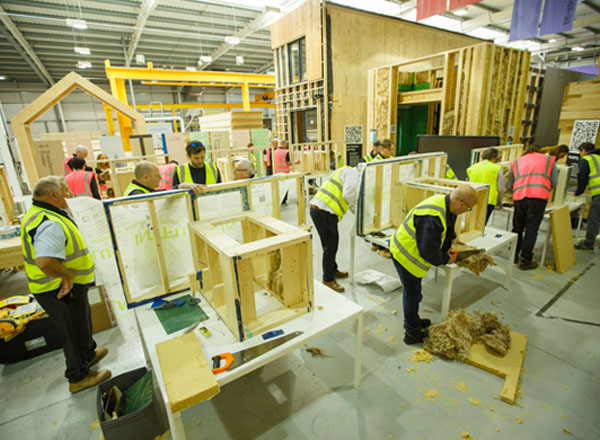
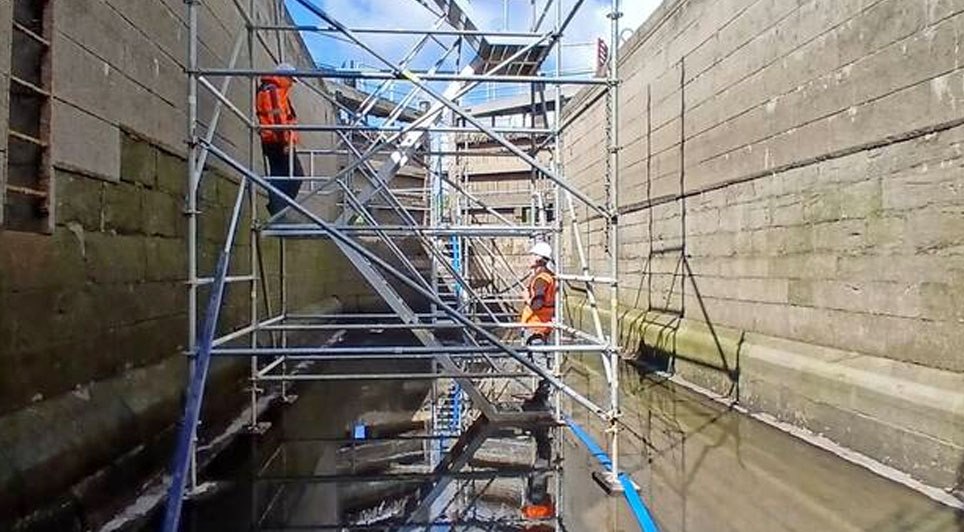
11/07/2025
Scottish Canals has announced that it is now halfway through its significant engineering programme on the Falkirk Flight of the Forth & Clyde Canal, an ambitious project spanning from locks 3 to 16.
This undertaking represents the biggest single investment in Scotland's canals since the Millennium

11/07/2025
The Construction Industry Training Board (CITB) has announced the elite line-up of finalists for SkillBuild 2025, bringing the nation's most promising construction trainees and apprentices one step closer to being crowned the best in their trade. Recognised as the largest and longest-running industr

11/07/2025
The Eastern Green Link 2 (EGL2) project has confirmed a temporary adjustment to working hours at its converter station site near Boddam, Peterhead.
This strategic decision is designed to facilitate crucial construction activities and ensure the timely delivery of this nationally significant energy
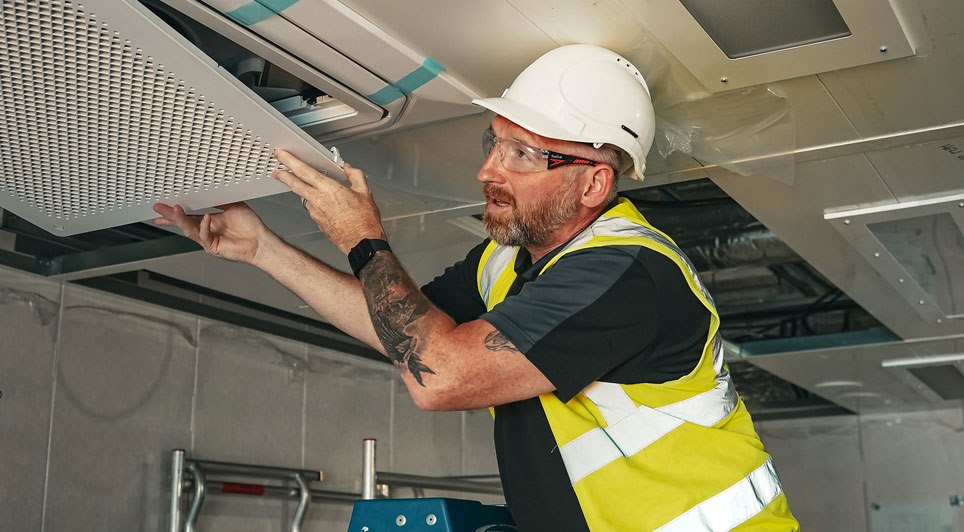
11/07/2025
Aberdeen-based manufacturer Nexos has announced a significant boost to its operations, with its heating, ventilation, and air conditioning (HVAC) team securing £8 million in new contracts since January this year.
This latest achievement follows a period of substantial growth for the firm, which re

11/07/2025
Glasgow-based construction firm CCG (Scotland) Ltd is celebrating a significant achievement as three of its landmark residential developments have been shortlisted as finalists for the prestigious RICS UK Awards 2025.
This year marks the first time the awards have operated on a fully national form

11/07/2025
The Scottish Government has today launched a significant new initiative, the £2 million Heavy Goods Vehicle (HGV) Market Readiness Fund for 2025-26, signalling a clear commitment to accelerating the decarbonisation of Scotland's road freight sector. The fund is specifically designed to encourage col
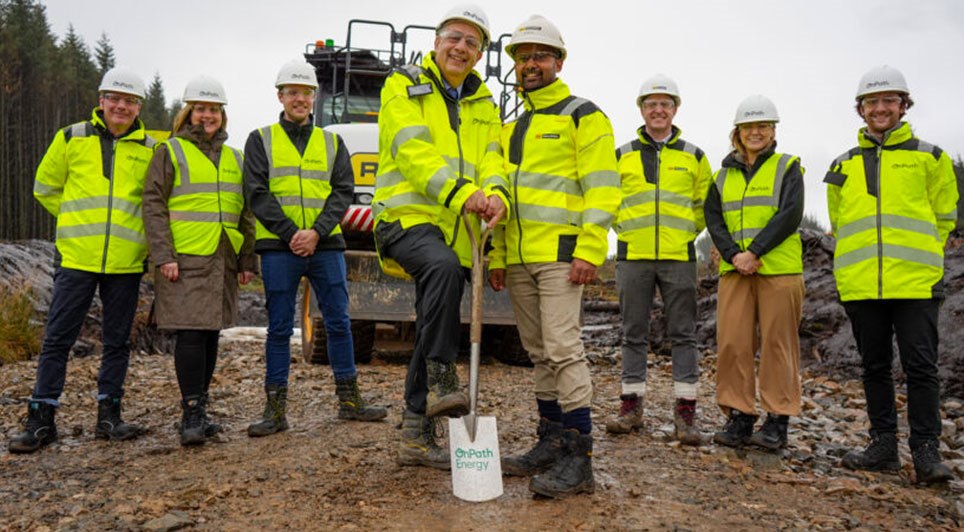
10/07/2025
RJ McLeod has officially begun construction works at the site of £155million Mill Rig Wind Farm in South Lanarkshire, a major milestone for onshore wind set to power approximately 45,000 homes annually.
Developed by UK renewables specialist OnPath Energy, the 33.4 MW onshore wind project is expecte
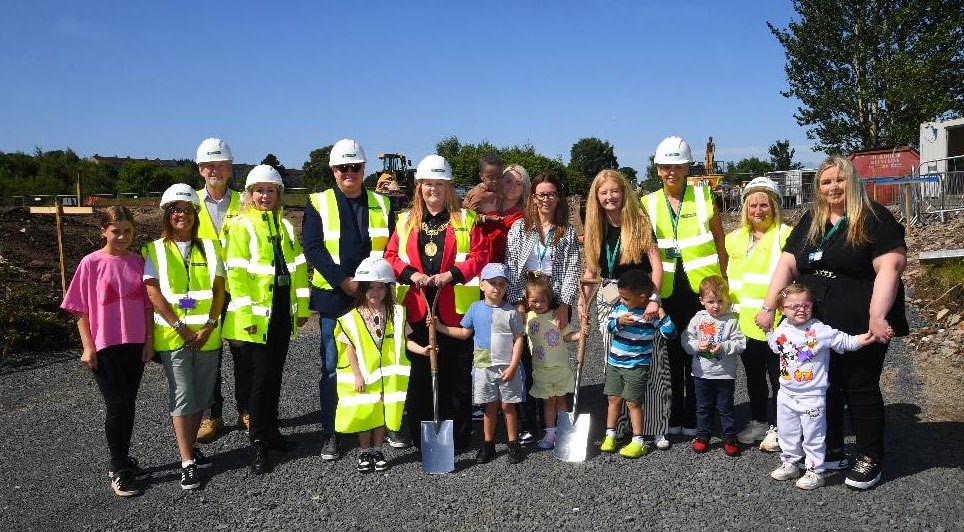
10/07/2025
Work has now officially commenced on the highly anticipated £6.7 million community facility in Milton, Glasgow, which will become the new, modern home for Scaraway Nursery and the vital local charity, North United Communities (NUC).
This state-of-the-art development is slated for completion by sum

10/07/2025
Construction of Bishopbriggs' new £31.5 million Balmuildy Primary School has taken a significant step forward as essential enabling works commence this summer, strategically timed during the school holidays to minimise disruption.
These preparatory activities will pave the way for the main build t

10/07/2025
Cumbernauld's urban landscape is poised for a significant transformation following the green light and nearly £3 million in funding for a new five-year wildlife restoration project.
Titled 'Nurturing Natural Connections', the initiative promises extensive tree planting and wildflower sowing, aimin
 Scotland
Scotland UK
UK Ireland
Ireland London
London











